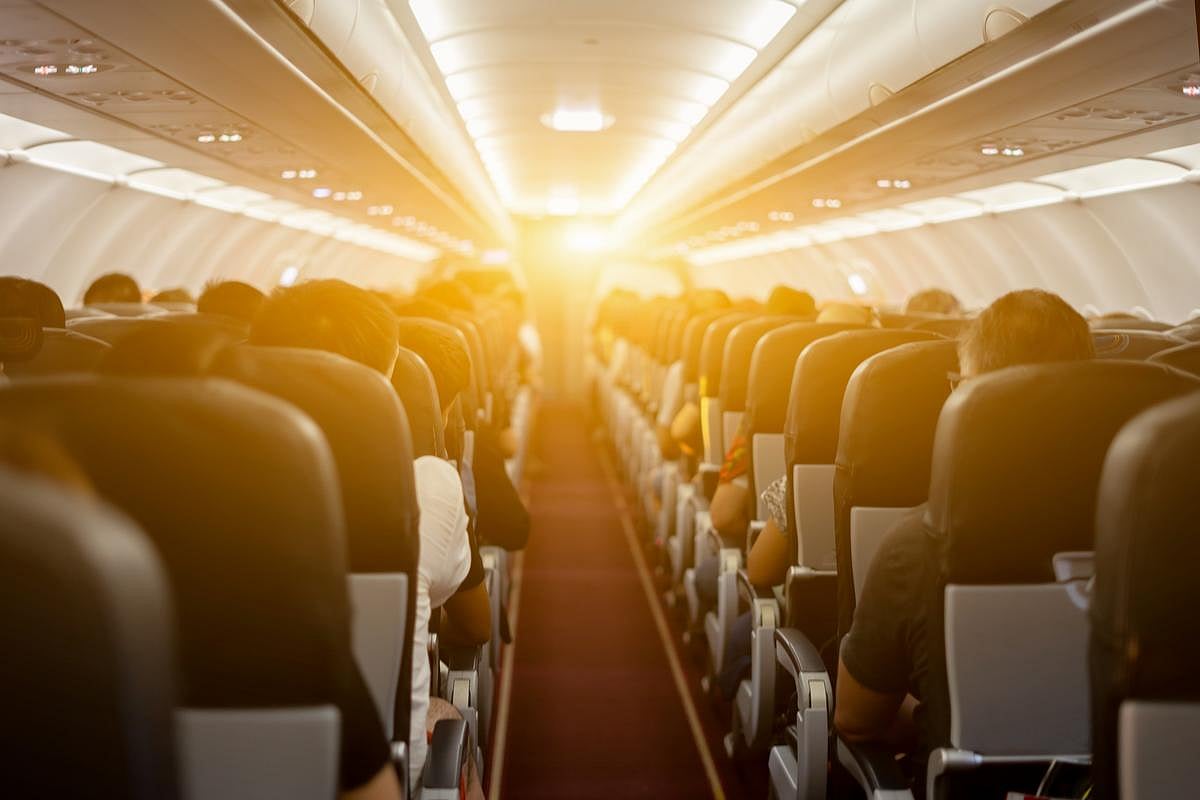Patient Resources
Get Healthy!
'Game of Roulette': Flying With Food Allergies Brings Stress, Danger
- December 5, 2024
- Dennis Thompson HealthDay Reporter

Holiday travel is always stressful, but particularly so for people with food allergies.
Airlines don’t always honor requests to protect the health of people with food allergies during flights, a new study published Dec. 5 in the Journal of Allergy and Clinical Immunology. found.
Many people with food allergies say that airlines promise to take steps to protect their health, but then don’t follow through:
20% were promised food allergy-related cabin announcements that didn’t happen
17% were promised allergen-free buffer zones that weren’t established
23% were promised allergy-free food options that weren’t offered
“We are not asking for the moon and stars, we just want reasonable accommodations that are promised in advance of travel to be honored at 30,000 feet,” said study co-author Lianne Mandelbaum, founder of the non-profit No Nut Traveler.
“On every flight it is uncertain if and how crew members will accommodate nut allergies, and this adds tremendous unnecessary stress,” Mandelbaum said. “Flying with food allergies is akin to a game of roulette, each flight a random spin around the wheel.”
For this study, researchers surveyed more than 4,700 individual patients and families around the world to assess their concerns related to air travel with food allergies.
Travelers with food allergies said they were most often worried about whether airlines would follow through on accommodations arranged during the flight-booking process.
They also said they sometimes had to sign special waivers absolving the airline of liability (5%) or provide a signed doctor’s note attesting they are “fit to fly” (12%).
Patients also said they were worried about having epi pens or allergy-safe foods confiscated or contaminated by airport security or customs agents.
Food allergies currently affect more than 33 million Americans, researchers said in background notes.
“These data clearly show that air travel is a major stressor for those affected by food allergy -- to the point that food allergy-related airline policies were the single-most important consideration respondents identified when making air-travel decisions -- taking priority over factors like the proximity of the airport to their home, flight duration and price,” said lead researcher Christopher Warren, director of population health research at Northwestern University’s Center for Food Allergy and Asthma Research.
Mandelbaum said she’s heard from people with food allergies being kicked off flights after asking for an announcement, and being mocked and ridiculed by flight attendants and other passengers for their health concerns.
“When you get to the gate and everyone acts like you’re crazy for bringing this up, that’s a terrible experience,” she said in a Northwestern news release.
Sadly, this sort of stigmatism leads many to not stick up for themselves, Warren said.
“We also found that a disturbingly high proportion of surveyed travelers reported deliberately not disclosing their food allergy when travelling, with many expressing concern that such efforts would lead to undesired consequences,” Warren said.
The outlook wasn’t all bad, however.
“Most travelers we surveyed expressed confidence that their anxiety could be substantially reduced if airlines systematically implemented appropriate policies, and around one in three respondents could recall a specific experience where an airline or flight crew member went ‘above and beyond’ to accommodate their food allergy, accommodations that were often related to the crew member’s own personal experiences with food allergy,” Warren said.
Senior researcher Dr. Ruchi Gupta, director of Northwestern University’s Center for Food Allergy and Asthma Research, said his personal experience dealing with in-flight allergy emergencies has been largely positive.
“On the occasions when I have been called upon to treat in-flight health emergencies and have personally cracked open the in-flight medical bag, I have been pleasantly surprised each time I found unexpired epinephrine auto-injectors ready for immediate use,” Gupta said.
“However, I know that this is not always the case,” Gupta added. “Every traveler and family at risk of anaphylaxis deserves the peace of mind that their potentially lifesaving medication is unexpired and ready for use in every emergency kit.”
More information
The U.S. Centers for Disease Control and Prevention has more on allergies and travel.
SOURCE: Northwestern University, news release, Dec. 5, 2024

